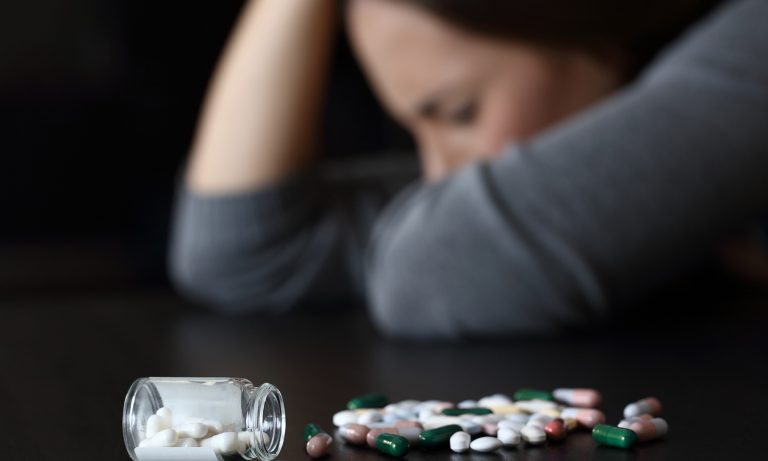drug rehab thailand
drug rehab outpatient
"According to the Hazelden-Minnesota Model, addiction is a disease that is brought on by uncontrollable external forces. The curriculum consists of instructive lectures, cognitive-behavioral psychology, Twelve Step and Alcoholics Anonymous principles, and biblio-theory. It tries to treat chemically dependent patients, adopting a set of values and beliefs about people's helplessness against drug use and turning to a Higher Power to aid in the fight against the illness. In this method, patients and counselors work together to define the road to recovery."

gold coast addiction and treatment rehab
"What Can I Bring With Me To Drug Rehab? Drug Rehabs have very strict policies about what you can bring with you to treatment. Most centers provide a recommended packing checklist and a list of prohibited items. ""Treatment centers allow you to bring the necessities. Policies on extra items vary by center"". When you arrive at rehab, you will check in and begin the admissions process. During this time, your center?s admissions team will inspect your bags to ensure safety and that no prohibited items are brought in. Some centers will also catalog what you bring to make sure you don?t leave anything behind when you leave."
addiction rehab melbourne
"Rehab enables you to regain the areas of your life that you may have lost as well as to become and remain drug-free. Numerous treatment centers provide job training and other supportive services to get you ready for a stable and rewarding life after rehab. Regardless of the sort of therapy you select, it can assist in putting you on the road to a lifetime of recovery."


rehab for drugs
"Drug Rehab is intended to help addicted individuals stop compulsive drug seeking and use. Treatment can occur in a variety of settings, take many different forms, and last for different lengths of time. Because drug addiction is typically a chronic disorder characterized by occasional relapses, a short-term, one-time treatment is usually not sufficient. For many, treatment is a long-term process that involves multiple interventions and regular monitoring."
rehab launceston
"There are a variety of evidence-based approaches to treating addiction. Behavioral therapy (such cognitive-behavioral therapy or contingency management), medicines, or a mix of the two can be used in drug rehab. The specific type of treatment or combination of treatments will vary depending on the patient?s individual needs and, often, on the types of drugs they use."

rehabilitation for drugs
"Taking a step back in life? Suffering from blackouts? Constantly drinking yourself senseless? Feelings of no worth? Struggling with a dependency on alcohol? Doesn't matter who you are or what you've been through, if your alcohol use is causing problems in your life, spiritual yet, the only thing standing between you and drinking the poison is your willingness to ask for help and get out of these destructive patterns. No matter how deep rock bottom seems or how tough it is to reach out, rehab is the only answer for you. Detox is the first stage during drug rehab. Generally, it takes place in a hospital or residential setting, and provides round the clock medical assistance to easy the painful physiological symptoms of withdrawal. And after complete detox, comes the rehab stage. During rehab, the addict gets a chance to assess and know the real causes of alcohol addiction, also get a chance to develop a personalized addiction treatment plan, and work on any issues in life hindering them from sober living."
drug rehab centres
"One of the main worries for those who require addiction treatment is their family, including where they will stay, how they will support themselves, and whether they will be able to communicate with them while receiving treatment. These challenges may be addressed, and being aware of your alternatives will help you decide what is best for you and your family."

How long are your rehab programs?
Drug rehab programs vary in length greatly, from 30 days to 90 days or longer. Depending on your personal needs and the complexity and severity of your addiction, you may need a short or long-term rehab program to achieve lasting sobriety. Although a longer program requires more of a commitment, research shows that most people need at least 90 days to maintain positive outcomes in treatment.2 It’s always a good idea to ask about the duration of a rehab center’s programs as well as a continuum of care that carries clients through each stage of the addiction treatment process.
Are your rehab programs personalized to each client’s needs?
All drug detox and rehab treatment programs should begin with a personal assessment to determine your treatment needs. This process is essential because it gives professionals the information they need to properly develop a treatment plan that will address your individual needs and circumstances. All individuals experience addiction differently, so there is no one-size-fits-all solution. Effective addiction treatment must be individualized and adjusted to meet the changing needs of the client.
What type of treatment methods do your rehab programs use?
Treatment approaches for drug and alcohol addiction can vary depending on the drug rehab center and its core principles and beliefs. According to the Substance Abuse and Mental Health Services Administration (SAMHSA), high-quality research shows evidence-based programs provide positive outcomes for people who are recovering from addiction.1 There are many different types of treatment methods available, but for many people, the most effective approach includes individualized treatment comprised of a mixture of counseling and medication. It’s important to determine the treatment methods and approaches of any drug rehab center you consider, as this will directly affect your success in sobriety.
What makes your drug rehab center different?
Another great way to find out if a drug rehab program is right for you is to ask how it differs from the competition. Do staff members go above and beyond to help you coordinate an intervention or connect you with a professional interventionist? Do they offer a broad range of specialized therapies during treatment? Does the rehab center boast a beautiful, calming, and tranquil setting for addiction treatment? Find out what makes the rehab center unique to get a better idea of who they are and what they believe.
Are you able to treat clients with a dual diagnosis?
If you’ve been diagnosed with substance use disorder and mental health disorders like anxiety, depression, or PTSD, your treatment plan may be more complex than others. The most effective way to address co-occurring disorders is with integrated treatment, but not all drug rehab programs, facilities, and staff are properly equipped to manage the needs of clients with a dual diagnosis.3 As a result, it’s important to talk to the staff about their ability to treat dual diagnosis and provide proper care for a full recovery.
Does your treatment program provide family support?
Family involvement is also very important in addiction treatment and can help all affected individuals to heal and recover from the damage of chronic substance abuse.4 A high-quality drug rehab program will provide support for the whole family, which may include family therapy sessions or an intensive family program that provides education about drug and alcohol addiction, therapeutic interventions, group work, and homework assignments to promote positive behavioral changes.
What type of continuing care services are available after rehab?
Addiction recovery is an ongoing process that requires continued care, treatment, and support for a full recovery. As such, many drug rehab programs offer continuing care programs for clients that have already completed drug detox, residential rehab and/or an intensive outpatient program. Continuing care services may seem like an afterthought, but they are an essential part of the treatment process. Programs like IOP, aftercare, and sober living keep individuals engaged with their recovery, provide positive and sober social experiences, and offer one-on-one support and assistance managing relapse (if it occurs). If you’re considering a drug rehab center for services, make sure to find out what kind of continuing care programs are offered and to what extent.
How much do your programs cost and what are my payment options?
While the cost of treatment should never be a barrier, some “luxury” drug rehab programs can cost tens of thousands of dollars and aren’t a realistic option for everyone. Fortunately, many drug rehab programs are affordable and people with health insurance may use their benefits to reduce any out-of-pocket costs associated with treatment. When considering any drug rehab center for treatment, it’s always ideal to ask about cost up front and get details about any available payment options. Most drug rehab centers will provide free and confidential insurance benefits verification to help you maximize your benefits and use your health insurance to pay for rehab. Some drug rehab centers may also provide sliding scale payment options, reduced out-of-pocket payments, or scholarships to help make treatment more affordable for those who need it most.
Is your drug rehab center licensed and accredited?
A high-quality drug rehab center should, at a minimum, meet the state’s licensure requirements. In addition to that, the facility may also receive accreditation through several different agencies. The accreditation process can be long and tedious, but a rehab center that has completed an accreditation process displays its commitment to excellence as well as to the high standards set by the accrediting organization. Some of the most common types of drug rehab accreditation include those provided by the Joint Commission, the Commission on Accreditation of Rehabilitation Facilities (CARF), the Council on Accreditation (COA), and the National Committee for Quality Assurance (NCQA).
What type of detox does your rehab center offer?
Detox is often the first step in the addiction treatment process. Completing a detox program allows your body to cleanse itself of harmful chemicals and restore its natural functions. This also gives you the ability to start a rehab program in a stable and sober state, both mentally and physically. Drug detox and withdrawal can be severely uncomfortable and may even be life-threatening, depending on your substance abuse history, so having 24/7 medical assistance is not just ideal, it’s absolutely necessary. A drug rehab center should offer medical detox to ensure clients’ safety, comfort, and overall well-being at all times.